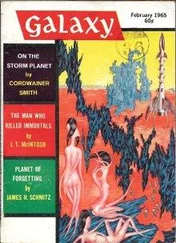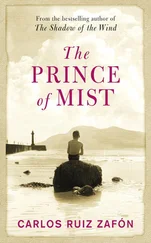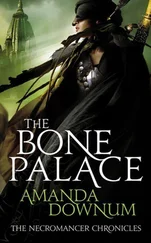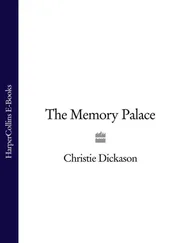Carlos Zafon - The Midnight Palace
Здесь есть возможность читать онлайн «Carlos Zafon - The Midnight Palace» весь текст электронной книги совершенно бесплатно (целиком полную версию без сокращений). В некоторых случаях можно слушать аудио, скачать через торрент в формате fb2 и присутствует краткое содержание. Жанр: Триллер, на английском языке. Описание произведения, (предисловие) а так же отзывы посетителей доступны на портале библиотеки ЛибКат.
- Название:The Midnight Palace
- Автор:
- Жанр:
- Год:неизвестен
- ISBN:нет данных
- Рейтинг книги:4 / 5. Голосов: 1
-
Избранное:Добавить в избранное
- Отзывы:
-
Ваша оценка:
- 80
- 1
- 2
- 3
- 4
- 5
The Midnight Palace: краткое содержание, описание и аннотация
Предлагаем к чтению аннотацию, описание, краткое содержание или предисловие (зависит от того, что написал сам автор книги «The Midnight Palace»). Если вы не нашли необходимую информацию о книге — напишите в комментариях, мы постараемся отыскать её.
The Midnight Palace — читать онлайн бесплатно полную книгу (весь текст) целиком
Ниже представлен текст книги, разбитый по страницам. Система сохранения места последней прочитанной страницы, позволяет с удобством читать онлайн бесплатно книгу «The Midnight Palace», без необходимости каждый раз заново искать на чём Вы остановились. Поставьте закладку, и сможете в любой момент перейти на страницу, на которой закончили чтение.
Интервал:
Закладка:
‘I’m not so different from you. I didn’t grow up in an orphanage, but I’ve never known what it’s like to have a home or someone to talk to, apart from my grandmother, for longer than a month. We lived in trains, in strangers’ houses, on the streets, never having a place we could call home or somewhere to return to. During all these years the only friend I’ve had is my father. And as I’ve said, although he was never there, I discovered everything I know about him from his books and the memories of my grandmother.
‘My mother died giving birth to me, and I’ve had to live with the sorrow of having no memory of her. The only image I have is the reflection I’ve found in my father’s writings. Of all his books, including the treatises on engineering and the thick tomes I never really understood, my favourite was always a slim volume of stories called Shiva’s Tears . He wrote it just before his thirty-fifth birthday, when he was busy developing the idea of Calcutta’s first railway line and a revolutionary station made of steel he dreamed of building in the city. A small publishing house in Bombay printed only six hundred copies of the book, but my father never saw a single rupee. I have a copy. It’s a small black volume with the words “ Shiva’s Tears by L. Chandra Chatterghee” embossed in gold on the spine.
‘The book is divided into three parts. The first focuses on his ideas for a new nation built on the spirit of progress, on technology, railways and electricity. He called it “My country”. The second part describes a fabulous house he planned to build for himself and his family once he’d managed to amass the fortune he longed for. He describes every corner, every room, every colour and every object in such detail that no architect’s plan could equal it. He called this part of the book “My house”. The third part, called “My mind”, is a collection of the short stories and fables he’d been writing ever since he was a boy. My favourite is the one that gives the book its title. It’s very short. Here it is…’ A long time ago Calcutta was struck down by a terrible plague that took the lives of its children, so that little by little, as the inhabitants grew older, they lost all hope for the future. To resolve the situation, Shiva set off on a long journey in search of a cure. During his travels he frequently had to confront danger. In fact, he met with so many difficulties that the journey kept him away for many years, and when he returned to Calcutta he discovered that everything had changed. In his absence, a sorcerer had come from the other end of the world bringing with him a strange remedy which he proceeded to sell to the people of Calcutta for a high price indeed: the soul of every healthy child born after that day. This is what Shiva’s eyes saw. Where once there had been a jungle of mud huts, there now rose a city so large that nobody could view it in a single glance and it faded into the horizon no matter which direction you looked. A city of palaces. Shiva was fascinated by the spectacle and decided to turn into a human being and walk through the streets of the city dressed as a beggar, so that he could get to know its new inhabitants, the children whom the sorcerer’s remedy had made possible and whose souls now belonged to him. But a great disappointment awaited Shiva. For seven days and seven nights the beggar walked through the streets of Calcutta, knocking on palace doors, but they were all slammed in his face. Nobody wanted to listen to him. People shunned him and poked fun at him. As he roamed the immense city in despair, he discovered that poverty, misery and darkness filled the hearts of its men. Such was Shiva’s sadness that on the last night he decided to abandon his city for good. As he did so, he began to weep and, without realising it, he left behind a trail of tears scattered through the jungle. At dawn Shiva’s tears turned to ice. When the men realised what they had done, they tried to make amends for their mistake by storing Shiva’s tears in a sanctuary. But, one by one, the tears melted in their hands and the city dwellers never saw ice again. From that day onwards, the curse of a terrible heat fell upon the city and the gods turned their backs on it, leaving it at the mercy of the night spirits. The few remaining righteous men prayed that, one day, Shiva’s tears might fall again from heaven and break the spell that had turned Calcutta into a doomed city.
‘Of all my father’s stories, this was always my favourite. It’s probably the simplest, but it embodies the true essence of what my father meant to me – and still does. Like the men of the doomed city, who had to pay the price for the mistakes of the past, I too await the day when Shiva’s tears will fall on me and free me of my loneliness. Meanwhile, I dream of the house my father built, first in his mind and, years later, somewhere in the north of the city. I know it still exists, although my grandmother has always denied it. She doesn’t know this, but I believe that in his book my father described the exact spot where he was planning to build it, here, in the Black Town. All these years I’ve lived with the hope of being able to walk into it one day and recognise everything I already know by heart: the library, the bedrooms, the armchair in the study …
‘So that is my story. I’ve never told anyone because I had no one to tell it to. Until today.’
As Sheere finished her tale, the darkness that reigned in the Midnight Palace helped conceal the tears of some of the members of the Chowbar Society. No one seemed ready to break the silence that infused the air following the end of her story. Sheere laughed nervously and looked at Ben.
‘So do I qualify as a member?’
‘As far as I’m concerned,’ he replied, ‘you deserve to be an honorary member.’
‘Does the house really exist, Sheere?’ asked Siraj, who was fascinated with the idea.
‘I’m sure it does,’ she replied. ‘And I’m determined to find it. The clue is somewhere in my father’s book.’
‘When?’ asked Seth. ‘When shall we start looking?’
‘Tomorrow,’ Sheere said. ‘You can help, if you want to …’
‘You’ll need someone with brains,’ Isobel remarked. ‘You can count on me.’
‘I’m an expert locksmith,’ said Roshan.
‘I can find maps in the Town Hall dating right back to the establishment of the government in 1859,’ said Seth.
‘I can find out if there’s any mystery surrounding the house,’ said Siraj. ‘It might be haunted.’
‘I can draw it exactly as it is,’ said Michael. ‘I can make plans. From the book, I mean.’
Sheere laughed and looked at Ben and Ian.
‘Fine,’ said Ben. ‘Someone will have to be the director of operations: I accept the job. Ian can put antiseptic on anyone who gets a splinter.’
‘I suppose you’re not going to accept a no,’ said Sheere.
‘We deleted the word “no” from the dictionary in the orphanage library six months ago,’ Ben declared. ‘Now you’re a member of the Chowbar Society, your problems are our problems. Company orders.’
‘I thought we were disbanding the society,’ Siraj reminded them.
‘I decree an extension due to grievous circumstances that cannot be ignored,’ said Ben, throwing his friend a withering look.
Siraj melted into the shadows.
‘All right,’ Sheere conceded, ‘but we have to go back now.’
The look with which Aryami greeted Sheere and the other members of the Chowbar Society could have frozen the surface of the Hooghly River. The elderly woman was waiting by the front of the building with Bankim, whose expression was so serious Ben immediately started dreaming up some improbable excuse to get his new friend out of the scolding that was clearly coming her way. He went ahead of the others and put on his best smile.
Читать дальшеИнтервал:
Закладка:
Похожие книги на «The Midnight Palace»
Представляем Вашему вниманию похожие книги на «The Midnight Palace» списком для выбора. Мы отобрали схожую по названию и смыслу литературу в надежде предоставить читателям больше вариантов отыскать новые, интересные, ещё непрочитанные произведения.
Обсуждение, отзывы о книге «The Midnight Palace» и просто собственные мнения читателей. Оставьте ваши комментарии, напишите, что Вы думаете о произведении, его смысле или главных героях. Укажите что конкретно понравилось, а что нет, и почему Вы так считаете.












